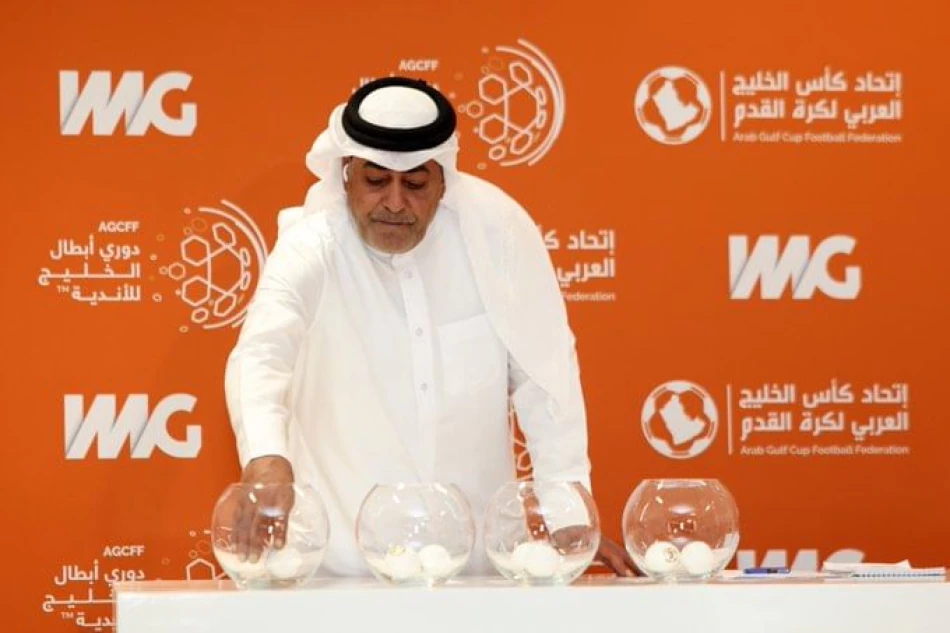
Gulf Champions League Football Tournament Postponed
Gulf Champions League Delayed Two Weeks as Commercial Pressures Mount
The Gulf Football Federation has postponed the start of its premier club competition, the Gulf Champions League, from September 16 to September 30, 2025, citing insufficient preparation time requested by the tournament's main sponsor. The delay signals growing commercial influence over regional sports scheduling and highlights the delicate balance between sporting calendars and corporate demands.
Sponsor Demands Drive Schedule Change
The Gulf Football Federation's General Secretariat announced the postponement following a formal request from the tournament's sponsoring company, which cited inadequate time to complete necessary organizational and technical preparations. The competition committee officially approved the delay, emphasizing the need to ensure optimal conditions for the tournament's launch.
This move reflects a broader trend across global sports where commercial partners increasingly shape competition schedules. The federation's willingness to accommodate sponsor requirements demonstrates the financial dependency that regional tournaments face in an increasingly competitive sports entertainment market.
Regional Football's Commercial Evolution
The Gulf Champions League represents one of the region's most watched football competitions, drawing significant viewership across the six Gulf Cooperation Council nations. The federation's emphasis on delivering an "exceptional edition" suggests mounting pressure to compete with larger continental tournaments like the AFC Champions League and European competitions that attract regional audiences.
Growing Stakes for Regional Competitions
The delay underscores how regional sports federations must balance multiple stakeholders' interests while maintaining sporting integrity. Unlike established leagues in Europe or South America, Gulf football competitions rely heavily on corporate sponsorship to fund operations and prize money, making sponsor satisfaction crucial for long-term sustainability.
Market Implications for Gulf Sports
From an industry perspective, this postponement reveals the maturation of Gulf sports marketing. Sponsors now wield sufficient influence to reshape tournament schedules, indicating substantial financial commitments that justify such accommodations. This trend mirrors developments in other emerging sports markets where commercial partners gain increasing control over competition formats and timing.
The federation's public emphasis on delivering superior "technical and organizational" standards suggests sponsors are demanding higher production values and more sophisticated tournament presentation. This aligns with broader regional efforts to position Gulf sports as premium entertainment products capable of competing globally for viewer attention.
Setting Precedents for Future Tournaments
While a two-week delay may seem minor, it establishes important precedents for sponsor influence over sporting calendars. The Gulf Champions League's accommodation of commercial demands could encourage similar requests in future seasons or inspire other regional competitions to grant sponsors greater scheduling flexibility.
The postponement ultimately reflects the evolving dynamics of regional sports governance, where commercial success increasingly determines operational decisions. As Gulf nations continue investing heavily in sports infrastructure and entertainment, tournaments like the Champions League serve as testing grounds for balancing sporting tradition with modern commercial realities.
Most Viewed News

 Sara Khaled
Sara Khaled






